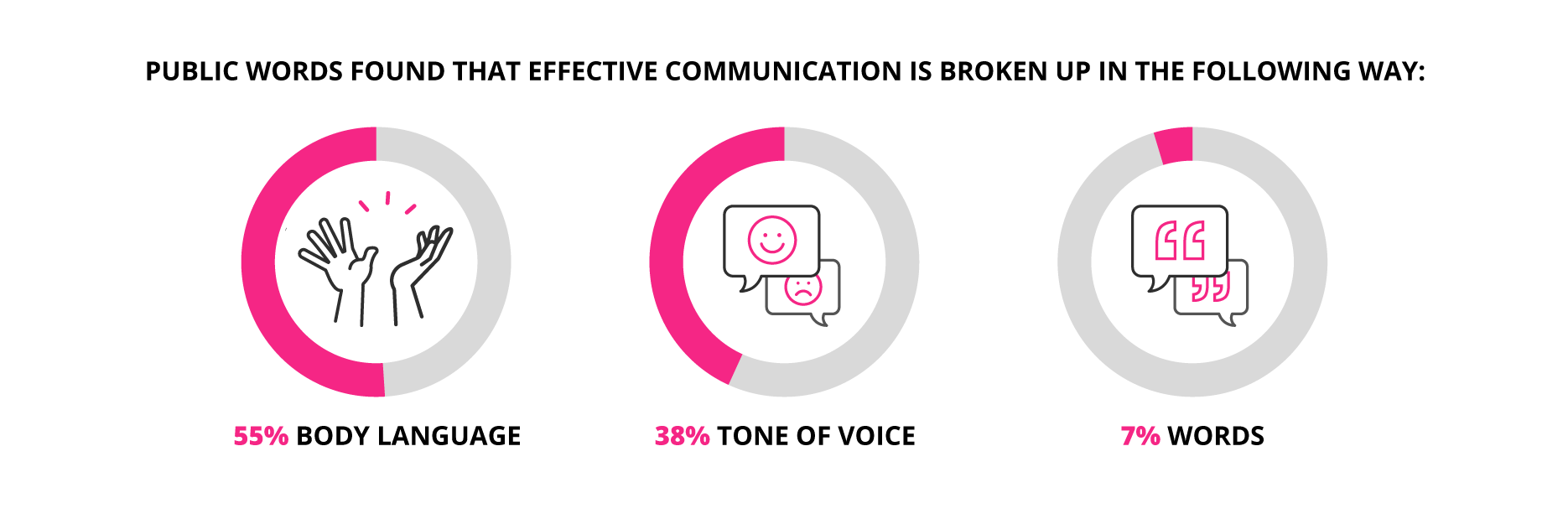How to handle difficult conversations at work
Effective communication is the key to a happy and successful team. But it’s not always easy to have difficult conversations.
Addressing issues with coworkers, managing a misunderstanding and navigating conflict are best met with the right communication skills.
Wondering how best to communicate your workplace grievance? Here’s why you should be having the conversation, how you’re going to get through it, and how you’ll make it work for you once all is said and done.
Why is it important to have difficult conversations at work?
Conflict is inevitable. According to Conflict Tango, 85% of professionals worldwide stated that they experience conflict at work firsthand.
Knowing how to effectively manage this conflict through communication is challenging, but mastering the skill is going set you apart in the professional environment.
Solving problems colleagues may have with you, each other, or daily processes, keeps the workplace environment pleasant and productive. No one wants to work in a place where they feel unhappy or unfairly treated. Don’t wait until you’re ready to quit to speak up.
Your ability to communicate and navigate a difficult conversation will result in happier team members, working towards the same goal.

Do these 5 things before sitting down to have difficult conversations
1. Let go of emotion – even if that means waiting.
If you approach difficult conversations with a colleague while you’re feeling angry, upset, or stressed, chances are that your decisions will be based on how you feel rather than on the facts of the situation.
2. Think about what you want to say and then practice how you’re going to say it.
Most of the time, it’s not what you do, but how you do it that matters. Your tone of voice is important, especially when you’re telling someone something they don’t want to hear. Practice is the key to effective communication because you’ll feel certain you’re able to communicate everything you need to and you’ll exude a sense of control over the situation.
3. Open your mind.
Accept the fact that you might be in the wrong, and don’t make assumptions about the intent of your colleague’s behaviour. If you’ve already made up your mind about what happened, you’re unlikely to resolve the conflict.
4. Monitor your body language.
Actions speak louder than words. If you’re leaning back in your chair and looking down on your colleague, the impression you’ll give is far more negative than if you were leaning forwards and paying obvious attention to what they have to say.
5. Think about how it made you feel at the time.
Place emphasis on the impact of the person’s behaviour on you, and keep to the facts. Frame the situation, describe their behaviour within that situation, and tell them how that behaviour affected you personally.

What to say in a difficult conversation
You’re prepared to start the difficult conversation but what do you say to ensure that the problem is resolved with as few egos bruised as possible?
Try starting your conversation with one of the following lines:
I’m feeling uneasy about what just happened and I’d like if you could help me make sense of it.
I’ve been thinking a lot about [situation] and I’d appreciate it if I could get your point of view.
I think we could learn a lot from each other about [situation]. Do you have time today to talk about it?
Once the conversation is underway, make sure you steer clear of words and phrases that encourage the other person to get defensive. The aim of this conversation is to use communication skills to find a solution.
Swap out some harsh phrases for solution-orientated words:
| INSTEAD OF SAYING THIS: | TRY SAYING THIS: |
| It’s not fair. | I feel like there is an imbalance here. |
| That’s not my problem. | Please ask…she’ll be more qualified t sort this out for you. |
| She’s lazy. | I feel like I’m working harder than others. Or am I wrong to think that? |
| That’s just how I am. | I’m sorry if I offended you, it wasn’t my intention. |
| I don’t have time. | I’m sure that isn’t feasible, given the timescale. When is the lateset you need it by? |
| Why didn’t you tell me that sooner? | It’s going to be tight, but I can try and schedule it in. |
| I don’t want to work with him. | I think I’ll be more effective if I take on this task with… |
| I’m over this. | I’m feeling very drained. |
| Leave me alone. | Could I have some space, please? |
3 important things to remember after resolving conflict in the workplace
The hard part is out the way. Now make sure that the effective communication you exhibited works for you in the future.
1. If the issue was successfully resolved, don’t bring it up again.
This shows that you are able to deal with conflict effectively, learn from it, and continue as normal. It will also encourage colleagues to approach you if they have a problem because you’ve displayed communication skills that move a team forward.
2. Keep the conversation and its outcomes to yourself.
You’ve worked hard to make sure you say the right things in the right way, and you wouldn’t want to ruin that through a misinterpretation that someone else might make if you discuss the conflict with them.
3. Continue business as usual.
Unless the outcome of your conversation warrants a particular action for anyone involved, treat all parties as you did before. This limits the post-resolution awkwardness and shows colleagues that just because there was conflict, doesn’t mean you’ll treat them negatively, or too sympathetically, once it is addressed.
